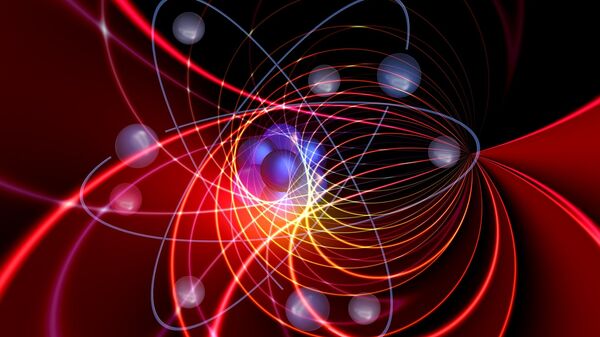Some results of this approach, leading to surprising results, have been discovered and studied by Louis Vervoort, a researcher from University of Tyumen (UTMN). The study results were published in Entropy magazine.
Millennial Puzzle
From ancient times, philosophers and scientists have argued whether everything in the world has its causes, or whether mere accidents are possible. In the 1920s, the same debate heated up in theoretical physics, between Einstein and Bohr. Even now, there’s no generally accepted solution to this problem.
Bohr’s quantum mechanics, indirectly defending the possibility of chance, is successfully used to work with ultra-small objects, while Einstein’s General Theory of Relativity (GR), which promotes the tradition of classical determinism, remains the only scientific description of gravity. The quantum gravity theory, which could resolve this almost century-old conflict, hasn’t yet been created.
Working within the framework of the modern probability theory, Louis Vervoort has put forward the hypothesis that the principle of determinism has greater explanatory power in interpreting the mathematical foundations of physics than the opposite principle, which is basic for modern quantum mechanics.
According to super-determinism, as this principle is called, from the moment of the Big Bang every event can happen in only one single way, and randomness as such is impossible.
"The key elements of modern probability theory — the Kolmogorov problem on the nature of correlation, and the Central Limit Theorem, which describes the probability laws of physical qualities — indicate the presence of “some hidden parameters” that Einstein predicted. Determinism also allows us to take a fresh look at Bell’s theorem, which today is considered the main obstacle to the unification of general relativity and quantum mechanics," Louis Vervoort explained.
At the Junction of Physics and Philosophy
In quantum theory, subatomic particles, as we know, paradoxically possess both the features of particles and waves, and their position in space can only be described probabilistically.
Albert Einstein saw this as evidence of the incompleteness of quantum mechanics, demanding to continue the search for a realistic description of natural processes, while Niels Bohr and his supporters defended the uniqueness of the laws of the microcosm, where, in their opinion, the physical laws that were familiar to us ceased to apply.
According to experts, an effective search for a theory that will overcome this crisis is possible by changing the research paradigm, which, roughly speaking, is a set of principles for interpreting the mathematical form of the theory.
“When we delve into the meaning of a scientific theory beyond the equations, we fall into the sphere of influence of philosophical principles. In the case of quantum mechanics, I believe that the purely philosophical principle of “free will” – the most commonly used counterargument against superdeterminism – often creates a kind of inertia that interferes with the formulation of urgent problems,” Louis Vervoort said.
Commenting on Vervoort’s ideas, Russian theoretical physicist, professor at NRNU MEPhI Sergey Rubin said that the researcher “touches upon deep problems of quantum mechanics, the foundations of which are not yet fully understood, therefore this topic is interesting to many.
Although super-determinism is still far from refuting Bohr’s interpretation of quantum mechanics, scientists are becoming increasingly interested in it. Such prominent physicists as Nobel laureate Gerard ‘t Hooft and Sabine Hossenfelder are proponents of it. So although not the mainstream interpretation, it gains momentum.


